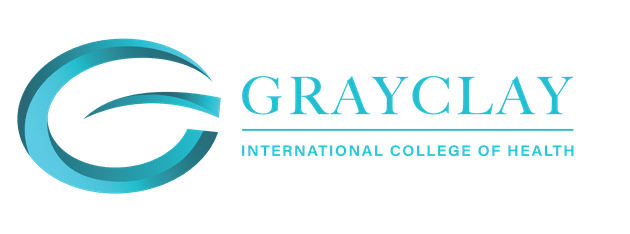The essence of community services lies in understanding and responding to the needs of individuals...
Dealing with Ethical Dilemmas in Community Services (CHC52021) Course
Ethical decision-making stands at the core of working in community services. Every day, professionals in this field encounter scenarios where doing the right thing isn't always straightforward. It might involve conflicts between personal values and professional obligations or situations where no clear "right" answer exists. Such ethical dilemmas require thoughtful consideration and apt decision-making skills to ensure that the values of both the individual and the community are respected.
The Diploma of Community Services (CHC52021) is designed to equip learners with these crucial skills. It focuses on developing an understanding of ethical issues that arise in this line of work, preparing students to address these challenges effectively. Through this course, learners gain insights into how ethics play a vital role not only in professional scenarios but also in everyday interactions. This integral focus on ethics forms a cornerstone of professional practice, ensuring that graduates are well-prepared to navigate the complexities of community services.
Understanding Ethical Dilemmas in Community Services
Ethical dilemmas arise when there is a conflict between two moral imperatives, making it difficult to decide the best course of action. In community services, these conflicts often surface because of the diverse needs and perspectives of the individuals and groups involved. Community service workers might face situations such as handling confidential information while attempting to protect someone at risk, or managing personal biases that could affect professional judgment.
Several common types of ethical dilemmas might be encountered.
- Confidentiality Breaches: Deciding when to disclose sensitive information in the interest of protecting someone yet maintaining professional confidentiality.
- Resource Distribution: Balancing limited resources among clients who might all have valid and urgent needs.
- Boundary Issues: Navigating personal and professional boundaries with clients to maintain a healthy professional relationship.
Consider a scenario where a worker must decide whether to break confidentiality because a client has expressed intent to harm themselves. While the primary duty is to protect the client, breaching their trust can have consequences on their willingness to seek help in the future. Such situations require careful evaluation, drawing from ethical training to arrive at the most responsible decision possible. Understanding and recognizing these dilemmas are essential in making informed and ethical choices in the course of one's duties in community services.
Key Components Covered in the Course
The Diploma of Community Services (CHC52021) offers a curriculum rich with learning opportunities for ethical decision-making. The course includes various components that help students build a solid ethical foundation. Key elements of this curriculum involve:
- Ethical Frameworks: Explore different ethical principles and frameworks that guide decision-making.
- Critical Thinking Skills: Develop the ability to assess situations from multiple perspectives and consider short-term and long-term implications.
- Conflict Resolution Techniques: Learn methods to resolve disputes ethically and effectively among clients or colleagues.
Practical applications of these skills touch myriad scenarios, such as resolving conflicts within a community group or determining the fair allocation of services. By engaging with real-world case studies, students can practice identifying ethical dilemmas and applying their learned skills to resolve them constructively and fairly. Such hands-on experiences are invaluable in preparing students for the challenging and dynamic environment of community services, helping them serve their communities with integrity and compassion.
Strategies for Dealing with Ethical Dilemmas
Dealing with ethical dilemmas effectively requires a toolkit of strategies that can be applied in various situations. The Diploma of Community Services (CHC52021) teaches these strategies to ensure that students are ready for the challenges ahead. A significant emphasis is placed on communication. Open dialogues can help clarify misunderstandings and lead to resolutions that consider all viewpoints. It's about fostering an environment where everyone feels heard and respected.
Consultation is another important strategy. Turning to peers or supervisors for advice can shed new light on a dilemma. It's beneficial to have multiple perspectives, which can help identify solutions that might not be immediately obvious. Reflective practice also plays a key role. By regularly reflecting on their actions and decisions, community service workers can learn from their experiences, refining their problem-solving skills over time.
Here are some practical tips for handling ethical dilemmas:
- Always listen actively to all parties involved.
- Seek input and advice from trusted colleagues or mentors.
- Evaluate the situation from different perspectives before deciding.
- Reflect on past decisions to see what worked or what could be improved.
These strategies provide a framework for making ethical choices that are aligned with professional standards and personal values.
Benefits of Certification in Community Services
Achieving a Diploma of Community Services (CHC52021) opens up numerous career opportunities. The certification demonstrates a strong commitment to ethical practice, which is highly valued by employers in the field. By honing skills in ethical decision-making, graduates can secure roles that demand integrity and professionalism, ranging from case management to community advocacy.
Beyond immediate job prospects, ethical competence ensures that professionals can maintain trust and credibility over the long term. Being able to consistently make sound decisions builds a solid reputation, foundational for career growth. Continuous professional development in ethics also prepares individuals for leadership roles. As they progress, they can guide others through complex situations, fostering a work culture that prioritises ethical practices.
Ethical Leadership in Community Services
Becoming an ethical leader involves creating a positive work culture and making ethical practices a priority. The Diploma of Community Services (CHC52021) prepares students to step into these roles by developing leadership skills that focus on fairness, transparency, and inclusivity. Leaders set the tone, and their commitment to ethics influences the entire organisation.
Promoting ethical practices isn't just about personal actions; it's about educating and empowering others. Leaders can hold workshops or discussions to foster understanding and camaraderie on ethical issues. Recognising and rewarding ethical behavior also reinforces its importance, encouraging everyone to uphold high standards.
By advancing skills in ethical leadership, graduates not only enhance their own career trajectories but also contribute significantly to the trust and effectiveness of their teams.
Equip Yourself with Ethical Competencies
Addressing ethical dilemmas effectively isn't just about knowledge—it's about practice and preparedness. The skills developed through the Diploma of Community Services (CHC52021) ensure that professionals can tackle complex situations with confidence and care. Enrolling in this course equips learners with the competencies needed to make a positive impact in their communities.
When professionals are well-prepared, they can navigate challenges while maintaining their integrity and the trust of those they serve. Making informed ethical decisions helps build a supportive and trustworthy community environment, benefiting everyone involved. The ongoing journey of ethical development is a crucial part of any professional’s toolkit, offering the chance not only to grow personally but also to elevate the quality of community support services.
Enhance your skills and community impact by earning a recognition that prioritises ethical decision-making. At Grayclay, equipping oneself with the tools needed for effective and ethical professional conduct is made accessible through our community services course certification. Dive deep into essential principles and set the foundation for a career dedicated to making meaningful contributions.



